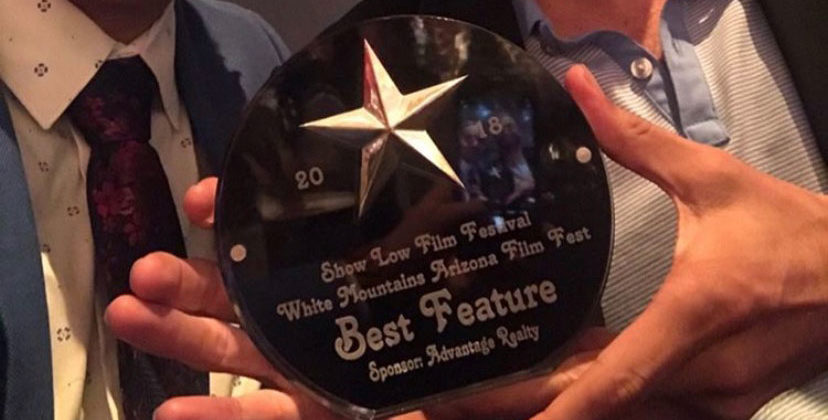The Film Festival Doctor (Yes, she’s a real doctor!) Dr. Rebekah Louisa Smith, shares with you today the secrets behind how to create a fantastic festival film that festivals will want to programme. The ‘Stay At Home’ orders of the CV19 pandemic have helped a lot of creatives become extremely productive and an abundance of writing has occurred, resulting in completed screenplays – and as you’ll discover below – it all starts with the script…
Before completing any film festival submissions, the first golden rule is know your product. Therefore, how do you identify if you have a ‘festival film’?
The way to answer this question is to pick your film apart and break it down into bitesize chunks – the place to start is with the script and the story. It’s important to ensure that you have got a film that is not commercial, formulaic and predictable and ‘by the numbers.’ A film that you see in the cinema like a Tom Cruise film, for example, follows a formula; you know what’s going to happen next, you can guess the dialogue. The story is a A, B, C D, predictable, boy meets girl, boy loses girl boy gets to go back, and so on and so forth. It is all spelt out and the characters don’t develop. That is a contemporary commercial movie, which sell a lot of tickets and is a lot of fun for spectators.
However, this is not the type of film that festivals want. They don’t show commercial movies. They like narratives that are edgy, groundbreaking, contemporary, something fresh and innovative, that is well executed, something that breaks boundaries, take a risk, shakes up and disrupts the usual codes and conventions and the stereotypical formulas.
If you craft your story in a way that is different to the mainstream, or that’s executed differently, that requires a bit of thinking when watching, is sophisticated and is not going to be commercially accessible to a general audience, then this is a good start.
Obviously, the story has to come with a well written script that has strong dialogue. A lot of films can have an interesting story, but not always strong or interesting characters, or not very well-rounded characters, or not very interesting dialogue that is predictable and dull. Overall, you need a sharp script, strong dialogue which is to the point and not overly long. It’s also very important that your film is not self-indulgent.
Another thing that will affect your festival selections, is that you have to ensure that your product is polished as every film should be made professionally. Good sound is crucial as it has to be strong, otherwise it can make the film look unprofessional.
Another big decision-making factor is strong acting and performances. Sometimes you can have an interesting film with a great concept but the acting is not good enough. The acting needs to be mature, sophisticated and strong to the point where everyone carries the movie and that it is a piece of work which people can relate to.
And the final thing is a suitable running time. With regards to short films, although you might find that a festival says that the maximum running time can be up to 30 – 45 minutes, the reason why 30-minute + films tend to get programmed is because they do not need to be shorter and deserve to be that length.
My advice is to keep it short. If you feel it needs to be shorter, trim it in order to make it as strong as it can be. When it comes to programming short films the ideal length that programmers like is between eight and 11 minutes.
15 minutes is a good length for a film too, just ensure that it doesn’t outstay its welcome. Try to cut the credits down as much as possible to make all your story really shine.
Anything more than 15 minutes it is important to ensure that the script is tight. With regards to a feature film no more than 90 minutes, 80 to 90 minutes is definitely a good length. Again, if the story and script justify a longer length and the pacing is good that is fine.
With regards to getting the length of your film spot on, I would advise to acquire feedback from people who are not attached to yourself and your film so that it is as objective as possible.
I would acquire feedback at the picture lock stage of your film when it’s almost finished, and see what type of feedback you’re getting from people and make changes where necessary.
And finally, please do not worry about your budget. It is irrelevant if the film was made for $1 or $1 million – it doesn’t matter. It has to have all of those things mentioned above in the film to make it festival viable and something which festivals want and are interested in.
This is something which I love helping filmmakers navigate, therefore feel free to reach out to me and discuss how we can help you further with this and as a bonus, download our free guide ‘The 4 Main Reasons Why Your Film Is Not Getting Accepted Into Film Festivals And How To Fix it’ –https://www.thefilmfestivaldoctor.com/e-book/
Coming Next Week: Now that you know what a festival film is and how to identify if you have one (or make one), the next golden rule is ‘Which Festivals Should I Submit My Film To?’ and I’ll discuss this in further detail next week. Here’s a clue – one word – research 😊




